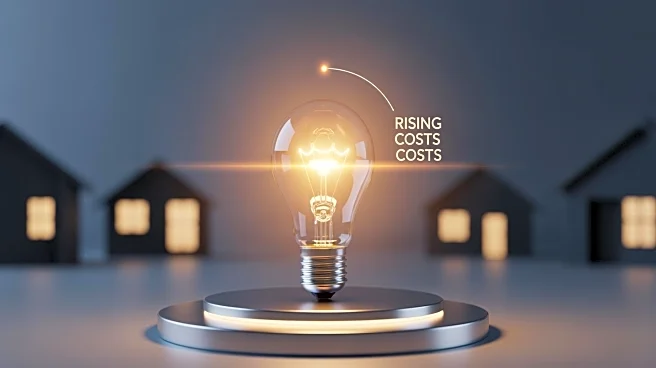What's Happening?
Utility companies across the United States have significantly increased electricity rates, affecting millions of households. According to a report by PowerLines, utility rate increase requests and approvals
reached over $34 billion in the first three quarters of 2025, nearly doubling the $16 billion from the same period in 2024. In New Jersey, a rate hike approved by the New Jersey Board of Public Utilities raised the average electric bill by 17%. This increase is part of a broader trend affecting over 124 million customers nationwide, leading to economic hardship for many. Despite efforts by consumers to reduce energy usage, the rising costs continue to strain household budgets.
Why It's Important?
The increase in electricity rates has significant implications for U.S. households, particularly those already struggling financially. As energy costs rise, consumers face higher living expenses, which can exacerbate economic inequality and financial instability. The issue has also become a focal point in political campaigns, with candidates promising to address energy costs. This development highlights the need for policy interventions to manage utility costs and support vulnerable populations. The rising rates could influence voter behavior and policy priorities in upcoming elections, as energy affordability becomes a critical issue for many Americans.
What's Next?
As the issue of rising electricity costs gains political traction, it is likely to influence upcoming elections and policy discussions. Candidates may propose measures to regulate utility rates or provide financial assistance to affected households. Additionally, there may be increased advocacy for renewable energy solutions and energy efficiency programs to mitigate the impact of rising costs. Stakeholders, including utility companies, regulators, and consumer advocacy groups, will likely engage in discussions to find sustainable solutions to manage energy costs and support consumers.











